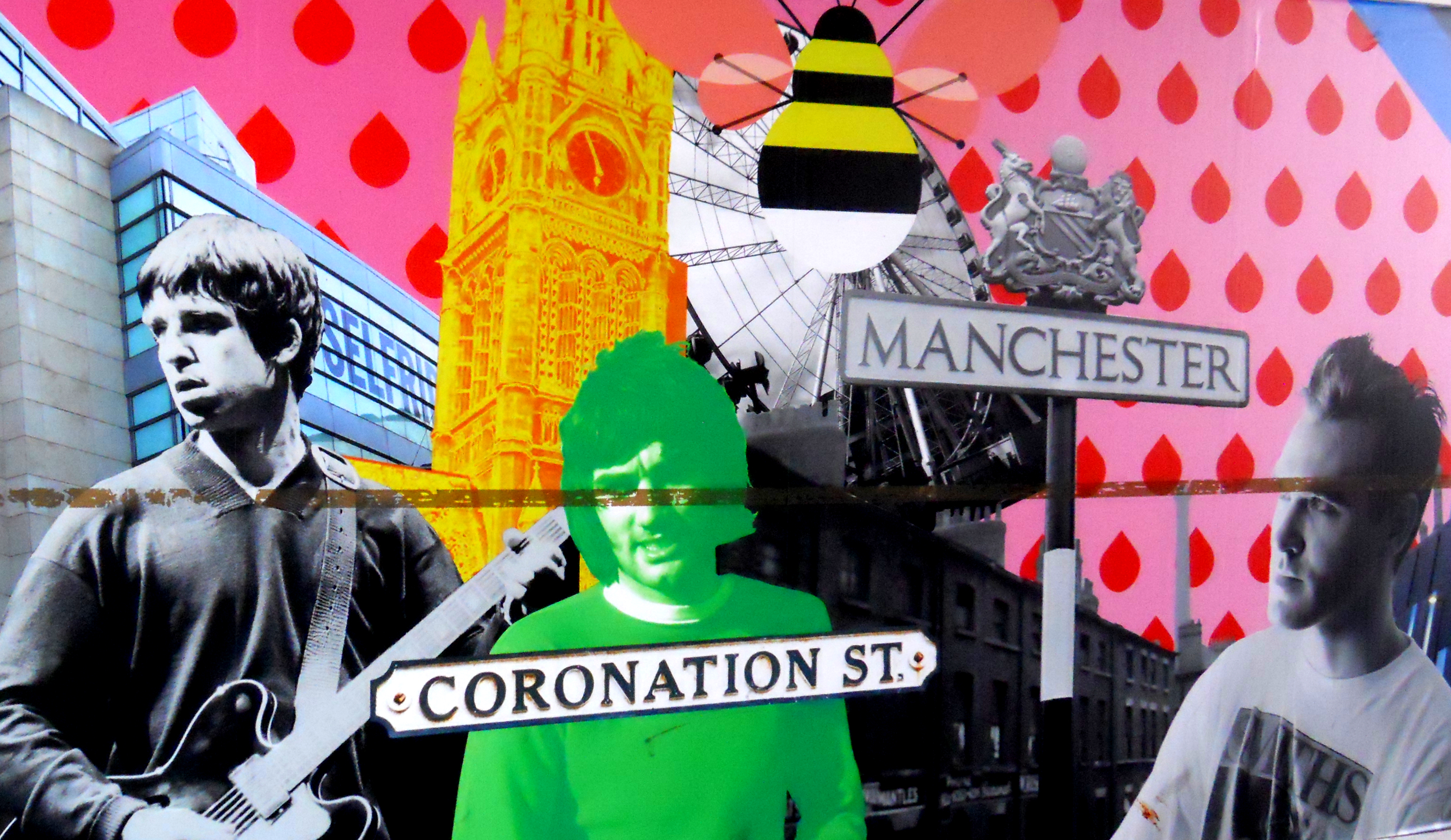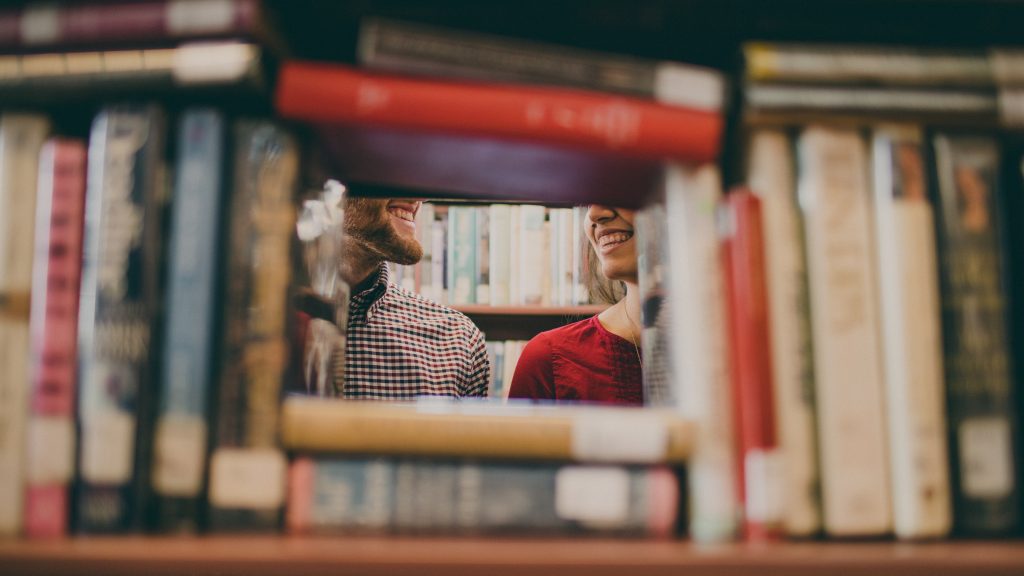On Monday 22nd May, 2017 a suspected suicide bomber killed 22 people who were leaving an Ariana Grande concert at the Manchester Arena. Another 64 people were injured, with more than 400 police officers and 60 ambulances at the scene.
The message from Manchester, however, has been one of defiance. At a vigil the next night thousands gathered in the city centre to spread a message of unity, diversity and peace. In the same spirit, we’ve put together a list of seven ways Manchester has helped to protect and advance our human rights. It was a hard task, but only because Greater Manchester has given us so many darn great things.
1. The Suffragettes, Feminism and the Right to Vote
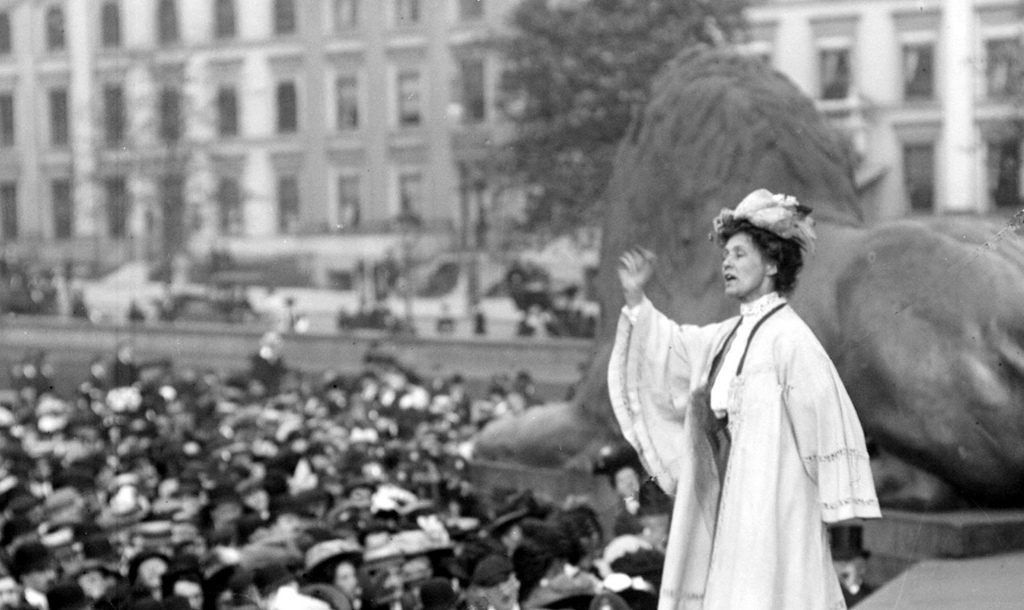 Image: BBC Archive / Flickr
Image: BBC Archive / Flickr
The right not to be discriminated against and the right to be able to take part in free and fair elections are specifically protected by the Human Rights Convention. But long before Convention was even an idea, Emmeline Pankhurst, born and raised in Moss Side, Manchester, was fighting for equality and women’s rights. She was the driving force behind the suffragette movement, passionately campaigning for women to be given the right to vote. She founded the Women’s Franchise League in 1889, continuing her work on women’s suffrage until her death in 1928, just two weeks before women were given an equal right to vote.
She’s not the only woman making waves in the city either – Right Reverent Libby Lane made history in 2015, when she became the first female bishop for the Church of England. The Church formally adopted legislation to allow women bishops in November 2014, with the Bishop of Stockport leading the way.
2. The Gay Village
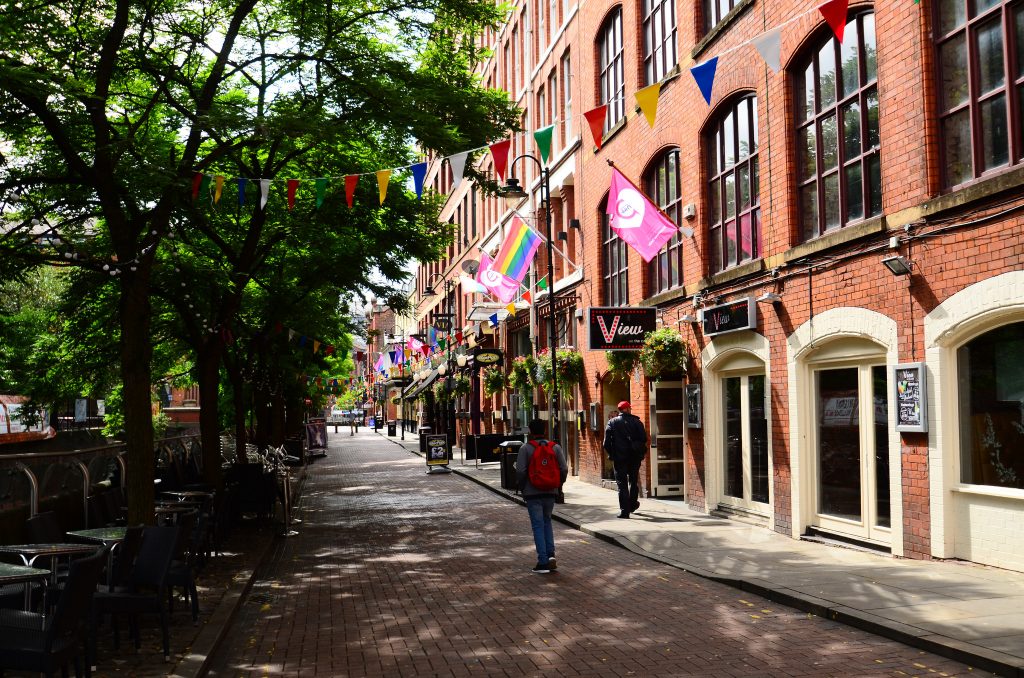
Image: www.Tecmark.co.uk
Sitting alongside Rochdale Canal (in itself an innovation), Canal Street and the surrounding area is a beacon of acceptance for lesbian, gay, bisexual and trans people. Although homosexuality was decriminalised in 1967, parts of society were slow to accept it, and members of the LGBT community were still effectively forced to hide away.
Canal Street, however, was determined to change things. It became one of the UK’s most thriving gay communities in the early 1990s, making a point of referring to itself as a ‘gay village’. Manto, a club which opened in 1991, was a shining example, with large glass plate windows to show the gay community that they no longer had to hide.
We’re all entitled to be free from discrimination, regardless of our sexuality or gender identity. It’s part of our human rights.
3. The Guardian
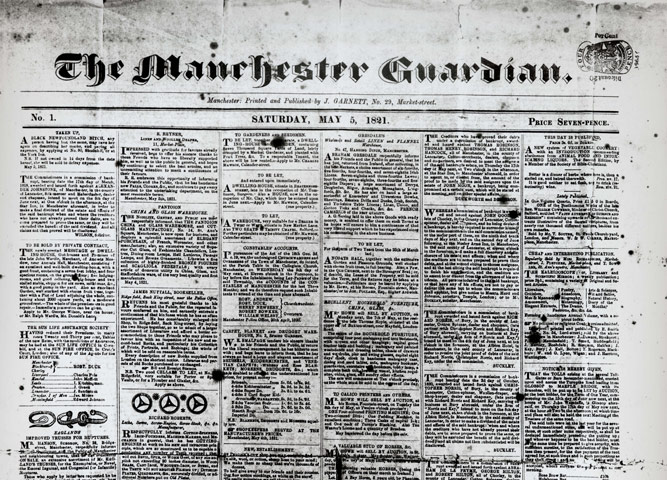
Image: Wikimedia Commons
The Manchester Guardian was formed in the aftermath of the Peterloo Massacre, where state-led cavalry charged into more than 60,000 pro-democracy protestors in Manchester. Eighteen people were killed and journalists at the scene were arrested. Those who reported the events were jailed.
After the closure of the Manchester Observer, the newspaper was set up in reaction to the massacre, and aimed to promote the liberal interests the state had tried to suppress. First hitting the streets of the city on Saturday, May 5, 1981, the paper steadily grew to introduce a Wednesday edition, before becoming a daily paper after the abolition of stamp duty in 1855. Today, The Guardian continues to be one of the most prominent newspapers, both in the UK and internationally.
A free press is one of the most crucial facets of a fair and democratic society, and it’s protected by our human rights. Journalists must be free to channel information and share ideas, as well as hold the Government of the day to account. Without such protections, leaders could use the press to conceal its own wrongdoings and to further its own political agenda.
4. Music To Inspire Us All
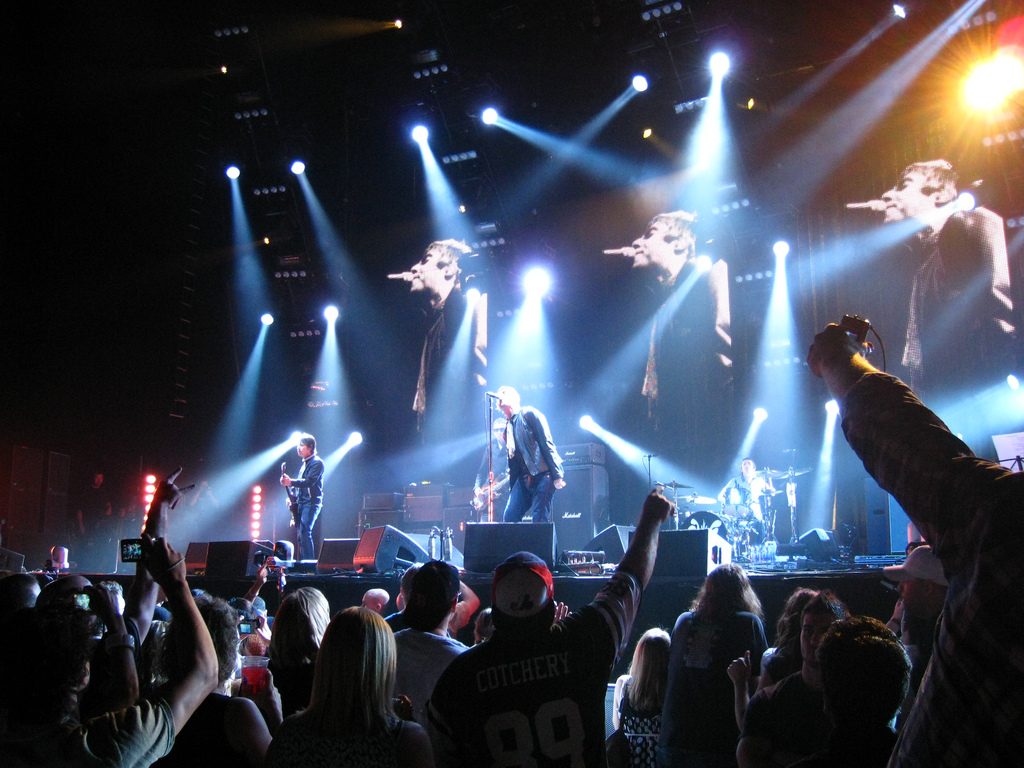
Image: Oasis Perform – Anirudh Koul / Flickr
Music is a powerful tool for creative expression, and freedom of expression is part of our human rights. Music can capture the mood of a generation, inspire social change and hold power to account. A hub of creativity, Greater Manchester has produced some of the most iconic British artists of the 20th Century.
Noel and Liam Gallagher both hailed from Manchester, becoming the legendary duo behind Oasis. Joy Division (and New Order), The Smiths, The Stone Roses, The Happy Mondays, and The 1975 were also exports of the city. Time to crack open this Manchester inspired playlist, we think.
5. Marxism, Socialism and Communism
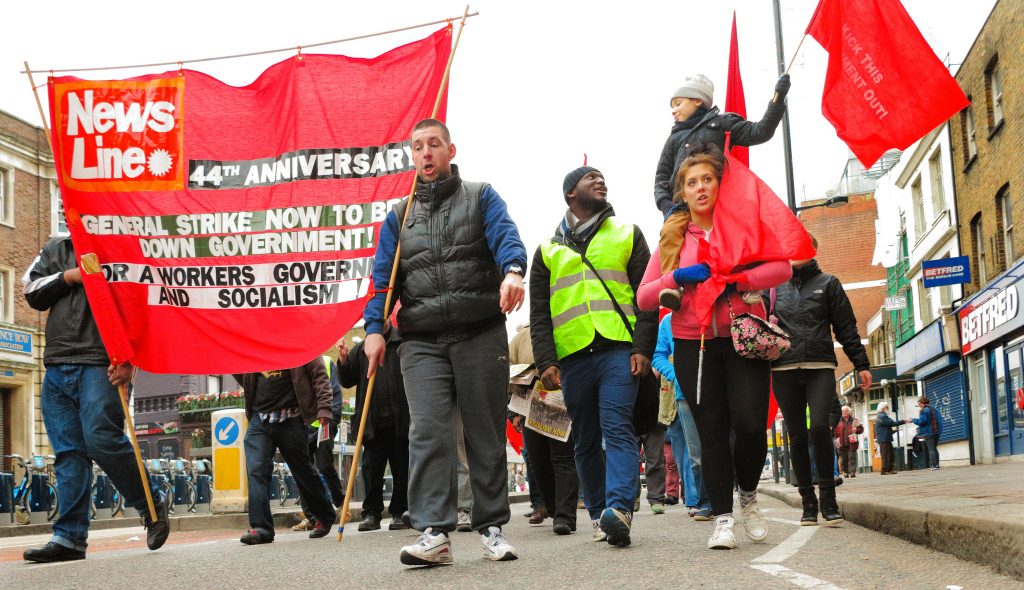
Image: Roger Blackwell / Flickr
When Karl Marx met Frederick Engels for the first time in Manchester in 1842 it was the beginning of a whole new wave of political thinking. An economic and social model which strongly rejects the ideas of capitalism, Marxism focuses on the inequality between the working class and the ruling elites. It later became the foundation for ideas surrounding socialism and communism.
Regardless of your political views, healthy debate is important. Our human rights protect the right to freedom of expression as a crucial part of democracy, as well as the right to protest, and Marx and Engels’ ideas continue to have a profound affect on political discourse in the UK.
6. The Library
Image: Josh Felise / Unsplash
The right to education is one of our basic rights, and libraries are a key part of education. Founded in 1653, Chetham’s Library is the oldest surviving public library in Britain, and was the first public library in the UK.
The library was established under the will of a prosperous Manchester textile merchant, banker, and landowner. Humphrey Chetham also provided for a school for 40 poor boys, and for five chained libraries to be placed in local churches. The library was also used by some of Manchester’s other great figures: Karl Marx and Frederick Engels often studied together in the Reading Room, working on their political theories.
7. Modern Computer Science

Image: Dai Ke / Unsplash
The computer has revolutionised the way we communicate, socialise and share information. It’s also been an amazing tool for human rights, allowing for the free flow of ideas and resources, helping to educate and empower people. It’s also shone a light on horrific human rights injustices around the world.
Alan Turing, widely considered the father of modern computing and artificial intelligence, joined the University of Manchester in 1948. During his time there, he worked on software for one of the earliest true computers – the Manchester Ferranti Mark 1. He also continued to work on artificial intelligence, with the Turing Test becoming a benchmark of an intelligent computer, setting the standards for modern computer science.
Thank you for everything, Manchester.

